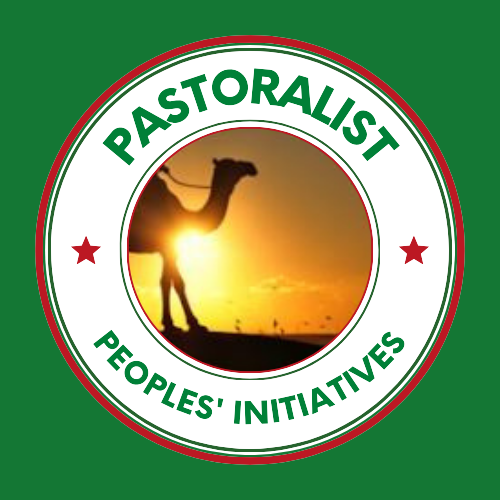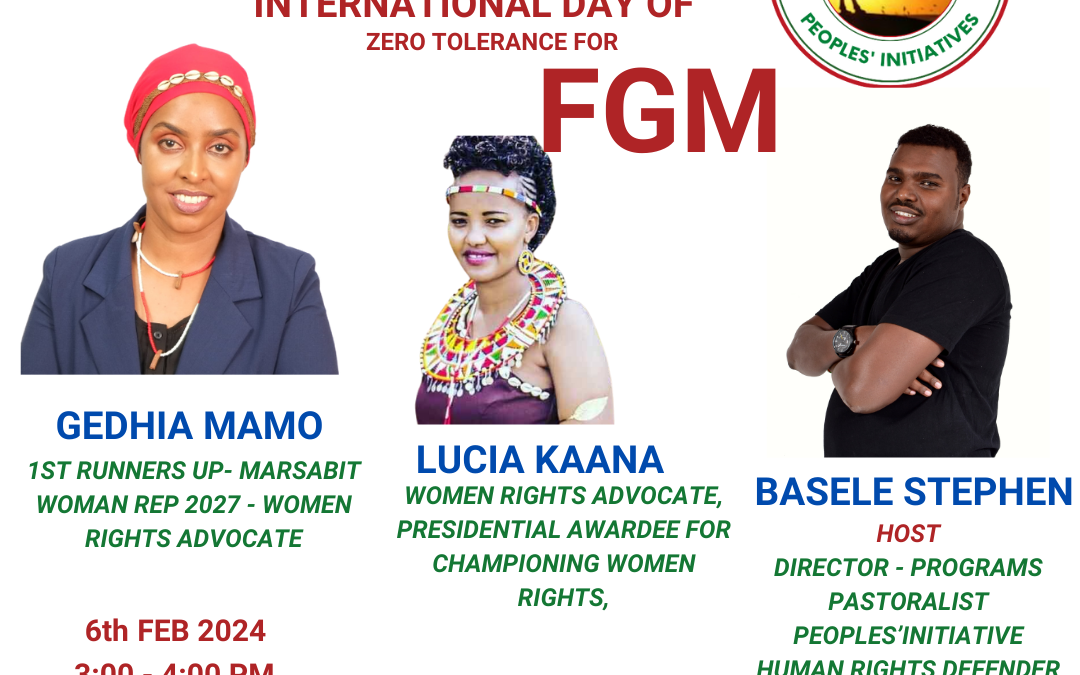Written by Zeitun Learat.
As the world commemorates the International Day for Zero Tolerance against FGM on 6th February this year, PPI is actively participating in marking this day, as it aligns with the organization’s vision and mission, which prioritize the well-being of girls and women in pastoralist communities.
Female Genital Mutilation (FGM) encompasses all procedures that involve injuring the female genitalia for non-medical purposes. FGM is classified as a violation of human rights and poses dangers to both the health and integrity of women and girls.

Among the short-term complications that FGM survivors may experience are severe pain, shock, excessive bleeding (which might lead to death), infections, and difficulty in passing urine. Additionally, there are long-term consequences for their sexual reproductive health and mental well-being.
The organization held a virtual conversation through its Facebook page on this issue, hosted by Programs Director Stephen Basele. Guest speakers included Gedhia Mamo, the 1st runner-up for women’s representative in 2027 in Marsabit County, known for championing women’s rights, and Lucia Kaana, a women’s rights advocate.
Both Gedhia and Lucia highlighted that FGM is a nationwide issue deeply rooted in various cultures across the country, not limited to pastoralist communities, although they constitute a significant portion. They lamented that the practice is not endorsed by any religion in the country, and those engaging in it should not hide behind religious justifications.
Gedhia shared insights indicating that girls who haven’t undergone the procedure often face stigma from their peers who have, which can compel them to undergo FGM. Parents who oppose FGM also face stigma for deviating from cultural norms.
The pastoralist community is known for its patriarchal structure, and men and boys are urged to participate in eradicating this violation of women’s rights, as they often play a role in coercing girls into undergoing FGM. For example, some boys in pastoral communities have expressed preferences for marrying only those who have undergone FGM, leading to increased divorce rates due to dissatisfaction in marriages.
Gedhia commended NGOs and the government for their efforts in combating FGM but challenged more politicians to actively engage in addressing the issue and not shy away from it, regardless of cultural attachments.
Lucia emphasized the importance of disseminating information at the grassroots level, where the practice is most prevalent. She also highlighted the economic dependence of women who perform FGM and suggested providing alternative livelihood opportunities for them.
“While cultural practices guide a community’s activities, harmful practices like FGM should not be condoned,” stated Lucia Kaana. “It is crucial to replace FGM with alternative rites of passage for girls and empower them through confidence-building and self-esteem initiatives.”

